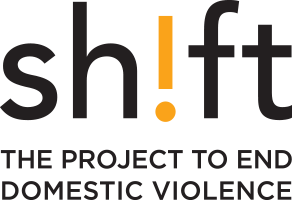The Centre for Addiction and Mental Health – Centre for Prevention Science (CAMH‐CPS), Western University and Shift: The Project to End Domestic Violence recently produced a progress report on the Healthy Youth Relationships Strategy. The strategy utilizes several intervention components, targeting teachers/classrooms and schools, parents and families, communities, and those working within systems and policy contexts. Highlights part‐way through Year 3 (April – October 2014):
Classroom and School-Level Intervention
As of October 31, 2014, more than 17,000 Alberta students have participated in Fourth R programs. We have exceeded our proposed Year 3 targets for the number of schools participating in the Fourth R, the number of teachers trained in the Fourth R, and the number of students receiving the classroom program. We continue to revise our implementation strategy to better support teachers and improve their awareness of the benefits of using evidence‐based healthy relationships programs in the classroom. We also stress the correlation between students’ social emotional competencies and academic achievement.
Parent‐Level Intervention
The Fourth R parent‐level intervention consists of three components: parent/child homework assignments, online modules, and in‐person workshops. In Year 3, we proposed that approximately 200 parents would be involved in the homework extensions of the project, 100 would participate in the two online modules, and 40 would participate in the in‐person workshop. We also proposed revising our modules based on any feedback provided by parents in Year 2. At the time of this report, not all of the assignments had been returned. However, the preliminary analyses of the parent surveys indicate that parents agree that the activities are relevant, include important skills for healthy relationships, and are enjoyable to complete.
Community-Level Intervention
We have made significant progress on the community‐level interventions in Year 3. The Fourth R Healthy Relationships Plus Program (HRPP) is a 15‐session small groups program designed to be facilitated outside of class time. The program targets adolescents who need additional support to acquire knowledge, skills and positive attitudes about healthy relationships, mental health, suicide awareness, and substance use and abuse. To date, nearly 2,000 students are receiving the program and more than 120 facilitators have been trained to deliver the program.
Systems and Policy-Level
There has been significant progress in developing and implementing the graduate program Advancing Healthy and Socially Just Schools at both the University of Calgary and the University of Lethbridge. The program was developed to build the capacity of educators, social workers, health care providers and other community service workers to develop safe and caring environments in which children and youth can develop healthy relationship skills and strive to be socially responsible citizens. This program is designed to broaden the understanding of the causes of violence, how these factors affect student learning, and strategies for promoting a proactive coordinated approach to violence prevention. The Master’s program content includes promoting healthy relationships, anti‐oppression education, developing resilient youth, and student advocacy. At this time, we are developing the course outlines for the University of Calgary, with the first online course starting in July 2015, and the remaining three courses will be offered during the fall of 2015 and winter/spring 2016. We continue to work with our partners in Lethbridge to offer the course in their Faculty of Education next fall.
For more information, contact Suzanne Zwarych at suzanne.zwarych@ucalgary.ca or (587) 832-0630.


